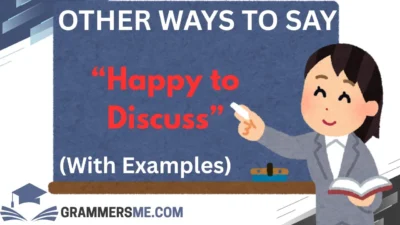When it comes to expressing care, camaraderie, and connection, the word “bro” has become a go-to term of endearment for many people. Whether you’re talking to a friend, sibling, or even a close colleague, finding the right words can make your message feel more personal and meaningful.
If you’re looking for ways to express warmth and friendship but want something beyond the familiar “bro,” this list of alternatives will help you elevate your communication with thoughtful and unique expressions.
What Does “Bro” Mean?
“Bro” is a casual, affectionate term commonly used to address someone, usually a close male friend or brother. It’s short for “brother” and often carries a tone of camaraderie, trust, and familiarity. In recent years, its usage has expanded to include friends of all genders in informal contexts.
While it’s typically used between people who share a close bond, it’s important to remember that some might not appreciate it in every setting.
Is It Professional/Polite to say “Bro”?
While “bro” is widely used in casual, informal conversations, it’s generally not the best choice in professional or formal settings. Using it in the workplace or with people you don’t know well could come off as unprofessional or overly familiar.
In these contexts, more neutral alternatives such as “colleague,” “friend,” or even their first name would be better suited to maintain politeness and respect.
1. Buddy
Meaning: A term for a close friend, someone you share trust and familiarity with.
Explanation: “Buddy” suggests a sense of companionship and mutual understanding. It’s informal, but not as casual as “bro.”
Scenario Examples:
- “Hey, buddy, let’s grab lunch later!”
- “Thanks for helping me out, buddy.”
Best Use: When speaking to a friend or a close colleague.
Not Use: In formal or professional environments.
2. Pal
Meaning: Another casual term for a friend, often used to show a strong bond.
Explanation: “Pal” carries a tone of friendship but can feel a bit more endearing or playful than “bro.”
Scenario Examples:
- “What’s up, pal?”
- “You’ve always been there for me, pal.”
Best Use: In friendly or informal settings.
Not Use: In serious or professional contexts.
3. Dude
Meaning: Often used to refer to a male friend, though it has broadened in usage.
Explanation: “Dude” is laid-back and friendly, making it an easygoing alternative to “bro.”
Scenario Examples:
- “Yo, dude, how’s it going?”
- “That was awesome, dude!”
Best Use: In casual conversations, especially with friends.
Not Use: When speaking to someone you don’t know well or in formal settings.
4. Man
Meaning: A common term of address for a male friend.
Explanation: “Man” is used similarly to “bro” but can carry a slightly more mature tone.
Scenario Examples:
- “What’s up, man? Long time no see!”
- “You nailed that project, man.”
Best Use: In casual conversations with close friends.
Not Use: In overly formal or professional contexts.
5. Chief
Meaning: A term used for someone you respect or hold in high regard.
Explanation: “Chief” is often used with humor and affection, suggesting someone is a leader in some way.
Scenario Examples:
- “How’s it going, chief?”
- “You’re the best, chief.”
Best Use: In informal settings with friends.
Not Use: In professional or serious contexts.
6. Homie
Meaning: A close friend, typically someone you’ve known for a long time.
Explanation: “Homie” is an affectionate, slang term that originates from hip-hop culture. It’s used to convey deep friendship.
Scenario Examples:
- “What’s up, homie? Let’s hang out soon!”
- “Thanks for having my back, homie.”
Best Use: Among friends who share a close bond.
Not Use: In professional or formal conversations.
7. Mate
Meaning: A British term for a close friend or companion.
Explanation: While it’s common in the UK and Australia, “mate” can be a warm alternative to “bro” in many English-speaking countries.
Scenario Examples:
- “How’s everything, mate?”
- “You’re a real legend, mate.”
Best Use: In casual conversations, especially in British or Australian contexts.
Not Use: In formal or overly serious situations.
8. Brother
Meaning: A term of deep affection, implying closeness and trust, often used among men.
Explanation: “Brother” is a great way to show someone is like family, even if you’re not biologically related.
Scenario Examples:
- “You’ve always had my back, brother.”
- “Take care, brother.”
Best Use: Among close friends or siblings.
Not Use: In professional or unfamiliar settings.
9. Sista
Meaning: An informal term for a female friend, often used in a playful, affectionate manner.
Explanation: Though the term is typically gendered, it can be a way to refer to a close friend with a sense of warmth and familiarity.
Scenario Examples:
- “You’re amazing, sista!”
- “What’s up, sista?”
Best Use: Among close friends, particularly women.
Not Use: In professional environments or when addressing someone unfamiliar.
10. Champ
Meaning: A term of respect and encouragement, often used to show support.
Explanation: “Champ” conveys a sense of victory or admiration, making it a motivating and affectionate alternative.
Scenario Examples:
- “Nice work on that project, champ!”
- “You’re killing it, champ!”
Best Use: When you want to encourage or praise someone.
Not Use: In overly casual or disrespectful contexts.
11. Buddy-boy
Meaning: A playful and affectionate way to refer to a close friend.
Explanation: “Buddy-boy” adds an extra layer of friendliness and can be used when joking around with a close friend.
Scenario Examples:
- “How’s it going, buddy-boy?”
- “You’re the best, buddy-boy.”
Best Use: Among friends who enjoy humor and playfulness.
Not Use: In serious or formal conversations.
12. Guv’nor
Meaning: A British term often used to express respect and affection for someone in charge.
Explanation: This informal term is often used in a lighthearted manner to refer to someone in a position of authority or respect.
Scenario Examples:
- “Alright, guv’nor, what’s the plan?”
- “Cheers, guv’nor!”
Best Use: Among close friends or colleagues, particularly in British culture.
Not Use: When addressing superiors in formal settings.
13. Ace
Meaning: A term for someone who is a friend and a high achiever, often used in sports.
Explanation: “Ace” can denote someone who’s particularly skilled at something, making it both a compliment and a term of endearment.
Scenario Examples:
- “That was a great play, ace!”
- “You’ve got this, ace.”
Best Use: When complimenting or showing support for a close friend.
Not Use: In professional settings without a personal relationship.
14. Homeboy
Meaning: A term used for a close, trusted male friend, often used in urban culture.
Explanation: “Homeboy” is often associated with deep friendship, implying that someone has been with you through thick and thin.
Scenario Examples:
- “Yo, what’s up, homeboy?”
- “You’re the real one, homeboy.”
Best Use: Among close friends who share a deep connection.
Not Use: In professional or formal settings.
15. Brosef
Meaning: A playful twist on “bro,” often used humorously.
Explanation: “Brosef” is a fun, exaggerated variation of “bro” that adds an element of humor and lightheartedness to the conversation.
Scenario Examples:
- “Yo, brosef, let’s get going!”
- “You’re the man, brosef!”
Best Use: When joking around with friends.
Not Use: In serious or formal conversations.
16. Big Guy
Meaning: An affectionate term for someone who is large in stature or personality.
Explanation: “Big guy” conveys affection, respect, or admiration, often used in a playful tone.
Scenario Examples:
- “How’s it going, big guy?”
- “You did great, big guy.”
Best Use: In casual settings, often with a sense of camaraderie.
Not Use: In overly formal or unfamiliar environments.
17. G
Meaning: A term of endearment often used to refer to someone with respect.
Explanation: “G” is short for “gangster,” but in modern slang, it’s used to express admiration or familiarity.
Scenario Examples:
- “What’s up, G?”
- “You’re killing it, G!”
Best Use: Among friends or peers, especially in informal settings.
Not Use: In formal or professional environments.
18. Homie G
Meaning: A combination of “homie” and “G,” used to refer to a close friend with a sense of respect.
Explanation: The combination makes the term even more endearing, showing that the person is both a friend and someone you admire.
Scenario Examples:
- “Yo, homie G, we need to hang soon.”
- “You’re the best, homie G.”
Best Use: When you want to express deep friendship and respect.
Not Use: In overly professional or formal settings.
19. King
Meaning: A term of respect, often used to compliment someone.
Explanation: “King” can be a way to show admiration for someone’s leadership or achievements.
Scenario Examples:
- “You’re the king, man!”
- “That was awesome, king!”
Best Use: When acknowledging someone’s greatness or leadership.
Not Use: In overly casual settings or when addressing authority figures.
20. Boss
Meaning: A term of respect or endearment used to address a friend, often implying admiration.
Explanation: “Boss” is often used in casual settings to express respect for someone’s skills, achievements, or leadership.
Scenario Examples:
- “You nailed it, boss!”
- “What’s up, boss?”
Best Use: When expressing admiration or respect in a friendly way.
Not Use: When addressing superiors in formal settings.
21. Stud
Meaning: A compliment, often used for someone who is attractive, skilled, or charismatic.
Explanation: “Stud” is a playful, often flirty term used to compliment someone, especially their appearance or abilities.
Scenario Examples:
- “You’re looking sharp, stud!”
- “That was amazing, stud.”
Best Use: Among close friends or in casual, flirty contexts.
Not Use: In formal or professional environments.
22. Papi
Meaning: A term of endearment often used for someone with a strong, masculine presence.
Explanation: While “papi” is often associated with Spanish-speaking cultures, it has gained popularity as a way to address someone with affection or admiration.
Scenario Examples:
- “What’s up, papi?”
- “You’re looking great, papi.”
Best Use: In informal, affectionate contexts.
Not Use: In professional or overly serious situations.
23. Kid
Meaning: An affectionate term for a younger person or someone you care about.
Explanation: “Kid” is often used to address someone in a playful, caring manner, even if they aren’t actually a child.
Scenario Examples:
- “How’s it going, kid?”
- “You did great, kid.”
Best Use: When speaking to younger friends or someone you look out for.
Not Use: In professional settings or with someone who might find it patronizing.
24. Broham
Meaning: A playful variation of “bro” with a humorous tone.
Explanation: “Broham” is a casual, lighthearted way to refer to a friend, making it sound even more affectionate and playful.
Scenario Examples:
- “What’s up, broham?”
- “You’re the best, broham.”
Best Use: Among close friends who appreciate humor.
Not Use: In serious or professional conversations.
25. Bud
Meaning: Short for “buddy,” it’s a casual term for a close friend.
Explanation: “Bud” suggests a friendly relationship, but it can sound even more affectionate and personal than “bro.”
Scenario Examples:
- “How’s it going, bud?”
- “Thanks for the help, bud.”
Best Use: In informal, friendly settings.
Not Use: In professional or formal contexts.
26. Son
Meaning: A term of affection or leadership, sometimes used to express superiority in a playful way.
Explanation: “Son” is a term used to address someone you have a mentor-like relationship with, often showing affection and care.
Scenario Examples:
- “What’s up, son?”
- “You got this, son.”
Best Use: When you want to show a mentor-like connection with a younger friend.
Not Use: When addressing authority figures or in professional settings.
27. Tito
Meaning: A term used in some cultures to affectionately refer to a close friend or relative.
Explanation: Often used in Filipino culture, “tito” means uncle but can be used as an affectionate term for a male friend.
Scenario Examples:
- “How’s it going, tito?”
- “You’ve got it, tito.”
Best Use: In cultural contexts, especially when you’re close to the person.
Not Use: In unfamiliar or formal settings.
28. Ace-man
Meaning: A twist on “ace,” with a more informal tone.
Explanation: “Ace-man” adds a touch of humor and familiarity, emphasizing the close bond.
Scenario Examples:
- “How’s it going, ace-man?”
- “You nailed it, ace-man.”
Best Use: Among close friends who enjoy joking around.
Not Use: In professional environments.
29. Fella
Meaning: A casual, friendly way to address a male friend.
Explanation: “Fella” is similar to “guy,” though it can sound even more informal and lighthearted.
Scenario Examples:
- “What’s up, fella?”
- “Great job, fella!”
Best Use: In casual conversations with male friends.
Not Use: In formal situations.
30. Big Brother
Meaning: A term that suggests a close relationship, like that of siblings, with a sense of protection and care.
Explanation: “Big brother” conveys a feeling of looking out for someone, offering protection and guidance.
Scenario Examples:
- “Take care, big brother.”
- “You’re always there for me, big brother.”
Best Use: When you have a sibling-like relationship with a friend or family member.
Not Use: When addressing someone in a professional setting.
Conclusion
Finding alternative ways to say “bro” can help you communicate warmth and affection in a more personal and meaningful way. Whether you choose a playful term like “buddy” or a more respectful one like “king,” using these alternatives allows you to tailor your words to the relationship you share with the other person. Keep these options in mind next time you’re chatting with a close friend, and you’ll bring even more sincerity and care to your communication.
FAQs
- What’s the best way to address someone casually without using “bro”?
It depends on your relationship! Terms like “buddy,” “dude,” or “homie” can be great options. - Can I use these terms in professional settings?
Generally, these terms are best saved for informal conversations with close friends. In professional settings, it’s better to stick with first names or titles. - Is it okay to use “bro” for a female friend?
It depends on the person. Some women may enjoy it, while others may not. It’s always best to know your friend’s preferences. - What if someone doesn’t like being called “bro”?
Respect their wishes and choose a different term of endearment, like their name or another more neutral term. - Are these alternatives suitable for all ages?
Most of these terms are informal and best used with peers or people of similar age. For younger individuals, terms like “kid” or “champ” could be more fitting.




